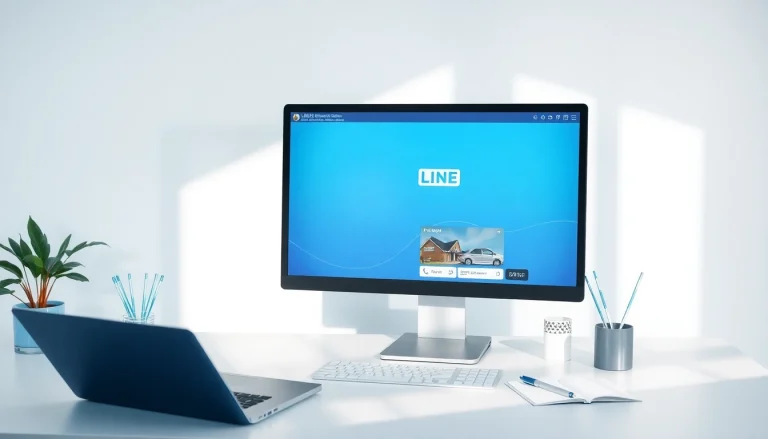Understanding the Role of a PC CASE Manufacturer
When it comes to PC building, one of the most critical components often overlooked is the case. As the protective structure that encloses and showcases the motherboard, graphics card, and other essential components, PC CASE manufacturers play a pivotal role in the performance, aesthetics, and functionality of your computer. Understanding what differentiates a good PC case manufacturer from a mediocre one can empower you to make informed decisions when investing in your next build.
What Makes a Good PC Case?
A good PC case is more than just a box that holds your computer components. Several factors contribute to its quality and functionality:
- Build Quality: Look for cases made from durable materials that can withstand the test of time. Steel, aluminum, and tempered glass are preferred for their strength and aesthetic appeal.
- Design Versatility: Cases should cater to various build types, accommodating different hardware configurations, cooling solutions, and personal style preferences.
- Ergonomics: Ease of assembly and cable management can greatly enhance the building experience. Consider tool-less designs and well-placed cable routing options.
Importance of Quality Materials
The materials used in constructing a PC case have a direct impact on its performance, durability, and overall experience. Metal cases generally provide better thermal conductivity compared to plastic, which can affect cooling. Additionally, high-quality tempered glass panels can partially or fully display the internal components while maintaining strength and clarity. Even within metal cases, gauge thickness is crucial; thinner materials may flex or bend easily, which compromises structural integrity.
How Design Impacts Performance
The design of a PC case affects more than just its visual appeal. Optimal airflow design facilitates better cooling, which is paramount for maintaining high-performance levels in gaming or computing tasks. Cases with strategically placed fans, air filters, and sufficient perforations enhance airflow, helping to prevent thermal throttling of components. Moreover, noise levels can also be mitigated through design features such as sound-dampening materials and layouts that minimize turbulence.
Popular Types of PC Cases to Consider
Whether you’re building a workstation, gaming rig, or media center, understanding the different types of PC cases can help you select the ideal fit for your needs.
Full Tower vs. Mid Tower vs. Mini Tower
PC cases come in various sizes, with full towers, mid towers, and mini towers being the most common. Let’s explore their distinct features:
- Full Tower Cases: Ideal for those requiring ample space for extensive hardware, full tower cases support multiple graphics cards, cooling systems, and storage devices. Their size also allows for better airflow and expansion options.
- Mid Tower Cases: These are the most popular choice for standard builds. Offering a balance between size and performance, mid towers can accommodate most components while remaining relatively compact.
- Mini Tower Cases: Designed for compact builds, mini towers are great for small offices or gaming setups where space is limited. However, they may limit hardware options and airflow capabilities.
Tempered Glass vs. Metal Panels
One of the aesthetic choices when selecting a PC case is the material of the side panels. Tempered glass panels are favored for showcasing the internal components with lighting effects, but they can also be prone to fingerprints and smudges. In contrast, metal panels provide durability and a classic look but offer less visibility into the system. Many manufacturers are now developing hybrid options that incorporate both materials.
Specialty Cases for Gaming and Workstations
Specialty cases have emerged for specific use cases, catering to gamers and professional users. Gaming cases often emphasize airflow and RGB lighting compatibility, while workstation cases prioritize functional design features such as cable management, cooling support, and easy access for upgrades. Many brands now offer cases specifically designed for liquid cooling setups, which can significantly benefit high-performance tasks.
Key Features to Seek Out from PC CASE Manufacturers
Understanding key features when reviewing potential cases from various manufacturers can lead to better choices tailored to one’s needs.
Cooling Options and Airflow Design
One of the foremost considerations in case selection is cooling. High-performance components generate significant heat, making airflow design crucial. Look for cases that support various fan configurations and placements, which can enhance overall cooling efficiency. Support for radiators and effective placement of vents can make a notable difference in temperature management. Many manufacturers specify the maximum cooling capacity directly in their product descriptions.
Cable Management Solutions
Good cable management can drastically improve the aesthetic appeal of your build while also aiding in airflow. Features to consider include ample space behind the motherboard tray, grommeted cable pass-throughs, and built-in cable ties. Some cases come with modular parts that allow users to adjust the space according to their cabling needs, resulting in a cleaner, more professional appearance.
Noise Reduction Features
While performance is key, noise levels can also affect your computing environment. PC cases now come with sound-dampening materials and specific designs that reduce noise output. Features such as rubber mounts for hard drives, insulated panels, and well-positioned fans can contribute to quieter operation. Investigating reviews and noise ratings is crucial for those who prioritize silence in their builds.
Evaluating PC CASE Manufacturers: A Buyer’s Guide
With myriad options available in the market, how do you evaluate the best PC case manufacturer for your build? Here’s a comprehensive buyer’s guide.
Brand Reputation and Reviews
Researching brand reputation is essential when selecting a manufacturer. Established brands often have better customer service and product reliability. Reviews on platforms like Amazon, Reddit, or dedicated PC-building forums can provide candid insights into customer experiences. Pay attention to frequent complaints or praises, especially concerning build quality, design flaws, and thermal performance.
Warranty and Customer Support Considerations
A strong warranty and responsive customer support are often indicative of a quality manufacturer. Look for warranties that cover a substantial period and provide protection against defects. Evaluate the company’s reputation for customer service through online reviews; companies with a history of effective support tend to foster customer loyalty and satisfaction.
Price Range vs. Value Offered
Price can significantly vary between manufacturers and product lines. While it might be tempting to opt for cheaper models, understanding the value offered compared to the asking price is crucial. Consider features, build quality, and brand reputation when determining whether a case is worth the investment. Sometimes slightly increased costs can yield significant improvements in quality and function, making them more cost-effective in the long run.
Future Trends in PC Case Manufacturing
As technology evolves, so do the demands and trends in PC case manufacturing. Keeping an eye on future developments can help you make informed choices for your builds.
Eco-Friendly Materials and Sustainable Practices
The tech industry is gradually shifting towards sustainability, and PC case manufacturers are no exception. Many are exploring eco-friendly materials and sustainable manufacturing practices to lessen their environmental footprint. Cases made from recycled materials, as well as companies emphasizing reduced waste in their production processes, are increasingly in demand as consumers become more eco-conscious.
Smart Technology Integration
The rise of smart home and IoT technologies is extending into PC building as well. Future cases may incorporate smart features that allow users to monitor temperatures, fan speeds, and even RGB lighting settings through mobile applications. Integration of sensors that adjust cooling efforts based on component temperatures can lead to optimized performance while saving energy.
Customization Options for Personalization
The desire for personal touch and customization continues to grow in PC building. Manufacturers are starting to embrace this trend by offering cases that allow for extensive modifications. Modular designs and interchangeable panels can give builders the ability to change the look and functionality of their cases as they please. Custom paint jobs, engraved panels, and the option to mix and match parts can further cement the personal connection between the user and their system.
Choosing a reliable PC CASE manufacturer involves understanding essential features, evaluating options, and staying abreast of trends to maintain performance and aesthetics. With a multitude of brands, each with its unique offerings and specialties, it’s vital to do thorough research to ensure you select a case that meets your needs and quality expectations.





















+ There are no comments
Add yours